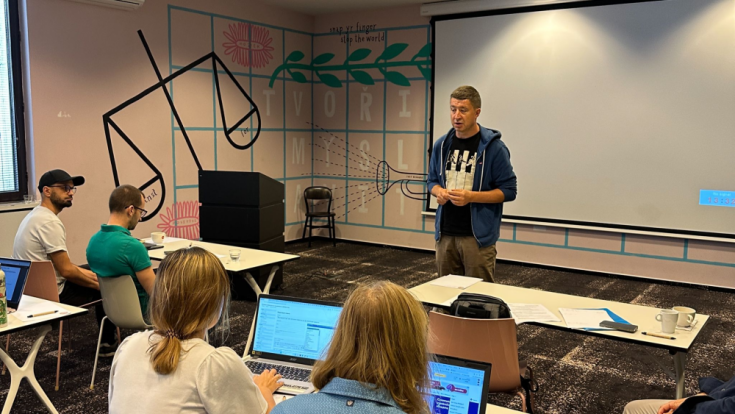The cohort of Amplify Europe, MDIF’s business capacity support program for independent media from selected countries in Central, Eastern and South-Eastern Europe, recently met in Prague.
As part of our meeting, I facilitated three group discussions about current managerial and leadership challenges facing small- and mid-size independent media outlets from Romania, Bulgaria and Croatia. In an unscientific poll of 14 top managers and editors from these organizations, more than 80% said that professional burnout was the main challenge.
Other key challenges included:
- Salary pressure caused by inflation and other factors
- Staff retention
- Deficit of experienced media managers, executives and leaders with business mindsets but strong journalism values
These issues are likely impacting most media outlets in the region and beyond, but they are rarely discussed at media conferences and industry events – they aren’t as trendy as fancy presentations on AI or subscription models, but are every bit as important.
Given the turbulence of recent years – relentless digital transformation, economic challenges for quality media, hostile political realities, Covid-19, hybrid work environment etc. – it’s no wonder that burnout is mentioned so often. Especially as these are small organzations, not corporations, their founders, top managers and senior editors, while trying to take care of their employees, don’t have the support of HR departments or external consultants.
Some quotes on burnout
“Now we are talking about burnout, but back home it happens so rarely. Burnout is an issue, but we always try to show a smiling face to our people in the newsroom.”
“We know what to do when we have problems with revenues or our content. That’s our job. But what to do when we feel burned out, or people working with us face it? Too often, when we do not know what to do, we do nothing.”
“Actually, burnout seems to be a factor related in some ways to each of the other challenges mentioned. Low salaries in independent journalism might lead to people taking a second job or extra gig. Hence – overwork and burnout.”
“We know that we need some fresh blood, experienced business managers. But it is hard to convince someone energetic and motivated to come and work for a team full of burned out, tired people.”
Other insights that point to a solution
- Identifying and admitting burnout as an issue is a necessary start, and often the most difficult step.
- The simplest reaction, taking time off, is the most common response, but it is just a small step, not a complete solution.
- Burnout usually builds up over months, do not expect it to disappear in days or weeks.
- Work changes help. Promotions, new projects, new topics, trips. But again, these are only small steps.
- Empathy, openness and trust can work miracles.
At Amplify Europe we will be tackling the issue of staff burnout in the cohort along with other challenges in the coming months.
Marcin Gadziński, Program Director for Europe
